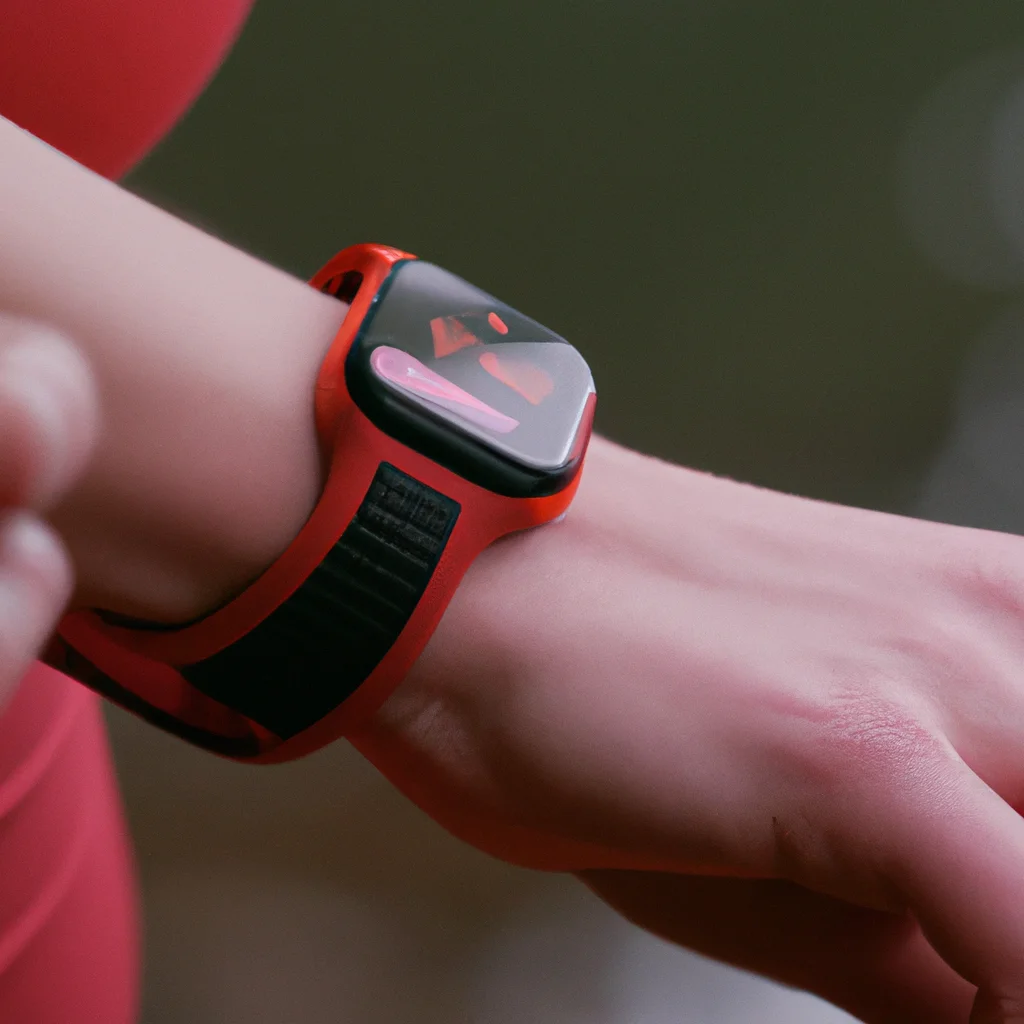How does a smartwatch measure heart rate?


How does a smartwatch measure heart rate?
Wearable technology is now more popular than ever, with smartwatches being one of the most in-demand gadgets. In addition to being a fashion statement, smartwatches offer a variety of health and fitness tracking features, including heart rate monitoring. But how do these devices measure heart rate? In this article, we will explore how smartwatches measure heart rate, including the technology behind it and the benefits of using this feature.
What is a Smartwatch?
A smartwatch is a wearable device that can connect to the internet and perform a variety of functions, such as receiving notifications, making calls, and tracking fitness data. These devices are equipped with sensors that allow them to measure different biometrics, including heart rate.
How Does a Smartwatch Measure Heart Rate?
Smartwatches use a technology called photoplethysmography (PPG) to measure heart rate. PPG is a non-invasive method of monitoring blood flow by shining a light through the skin and measuring the changes in light absorption caused by blood flow. This technology is also used in medical devices such as pulse oximeters, which measure oxygen saturation levels in the blood.
When you wear a smartwatch, the PPG sensor on the underside of the device measures your heart rate by detecting the changes in blood volume in your wrist as your heart beats. The sensor emits a green light that penetrates the skin and illuminates the blood vessels in your wrist. As blood flows through these vessels, the light is absorbed and reflected back to the sensor. The sensor then measures the changes in light absorption to determine your heart rate.
Benefits of Heart Rate Monitoring
Heart rate monitoring is a valuable feature of smartwatches, especially for those who engage in regular exercise. By tracking your heart rate during exercise, you can ensure that you are working out at the right intensity to achieve your fitness goals. For example, if you want to improve your cardiovascular health, you may want to exercise at a moderate intensity, which is typically between 50-70% of your maximum heart rate. By monitoring your heart rate, you can ensure that you are exercising at the right intensity to achieve this goal.
In addition to fitness tracking, heart rate monitoring can also be helpful for those with certain health conditions, such as heart disease or high blood pressure. By monitoring your heart rate, you can track changes in your health and identify potential issues early on.
Accuracy of Heart Rate Monitoring
One common concern with smartwatch heart rate monitoring is its accuracy. While PPG is a reliable technology, the accuracy of heart rate monitoring on smartwatches can be affected by factors such as skin tone, ambient light, and motion. For example, if you are wearing your smartwatch too loosely, it may move around on your wrist during exercise, leading to inaccurate readings.
Despite these limitations, smartwatch heart rate monitoring is generally considered to be accurate enough for most people. However, if you have a medical condition or are concerned about the accuracy of your heart rate monitoring, it is always best to consult with your healthcare provider.
Conclusion
Smartwatches offer a variety of health and fitness tracking features, including heart rate monitoring. By using PPG technology, these devices can measure your heart rate non-invasively, making it easy to track your fitness goals and monitor your health. While there are limitations to the accuracy of smartwatch heart rate monitoring, this feature is generally reliable enough for most people. Whether you are a fitness enthusiast or simply want to monitor your health, a smartwatch can be a valuable tool for heart rate monitoring and biometric tracking.
Recent Posts
How do I create an engaging and informative online quiz or assessment?
Creating an engaging and informative online quiz or assessment can be a powerful tool for… Read More
What are the most effective methods for managing and reducing work-related stress in the hospitality industry?
Work-related stress is a common issue in the hospitality industry, where employees often face long… Read More
How can I improve my assertiveness and communication skills in a leadership position?
In a leadership position, assertiveness and effective communication skills are crucial for success. Being able… Read More
What are the key elements of a successful employee recognition and rewards program?
Employee recognition and rewards programs play a crucial role in motivating and engaging employees, as… Read More
How do I effectively manage and respond to customer feedback and reviews?
Customer feedback and online reviews play a crucial role in shaping a company's reputation and… Read More
What are the best strategies for effective time management as a stay-at-home parent?
Effective time management is crucial for stay-at-home parents who juggle multiple responsibilities on a daily… Read More